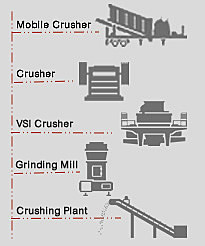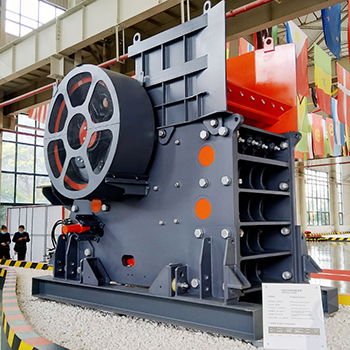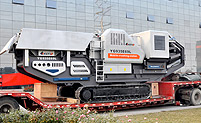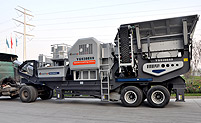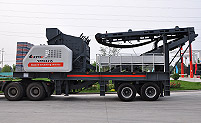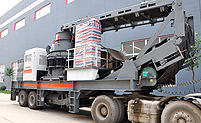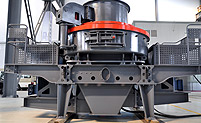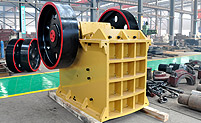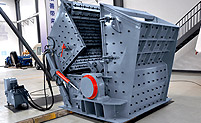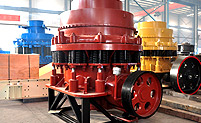Copper Ore Crusher
Copper ore is mined either at via open pit mines or underground mines. The beginning for all copper is to mine sulfide and oxide ores through digging or blasting and then crushing. In the crushing process, the copper ore is broken into small grain sizes of less than 25 centimeters in diameter by primary crusher, then crushing it to walnut-sized pieces by secondary crusher or fineness crusher.
Kefid is a professional copper ore benefication equipment manufacturer and supplier, our copper ore crushing fleet contains: PE jaw crusher (primary crusher), JC jaw crusher (Secondary crusher), PF impact crusher, PFW impact crusher (secondary crusher), cone crusher (fineness crusher),VSI crusher (fineness crusher). We also can supply portable crusher and mobile crusher to the clients according to the demands. After the crushing process, the crushed copper ore will be taken to the concentrator for grinding into fine powder.
Copper ore grinding mill
Ball mill plays an important role in the copper ore grinding process. Kefid ball mill is an efficient tool for grinding walnut-sized copper ore into powder. There are two ways of grinding: the dry process and the wet process. It can be divided into tabular type and flowing type according to different forms of discharging material.
The final copper ore powder produced by Kefid ball mill usually contains less than 1 percent copper, while sulfide ores are moved to a concentrating stage, while oxide ores are routed to leaching tanks.
Copper ore beneficiation process
To mine copper, the first step is to blast the copper ore from a open pit mine, then loaded and transported to the crushing plant. In a large-scale copper ore beneficiation plant, crushing plant and grinding plant is needed. In the crusher, the ore is broken into smaller pieces of less than 25 centimeters in diameter. Crushed ore is then loaded on to a conveyor belt which takes it to the concentrator. In the concentrator, primary SAG mill (We do not manufacture) and secondary ball mills grind the ore until it is a fine powder, Then the copper ore is crushed and screened, with the fine sulfide ore going to froth flotation cells for recovery of copper.
Copper ore
Copper mining and extraction also results in the extraction of gold, silver and molybdenum. Copper is found in nearly every home and vehicle, in parts and appliances, and in instruments used in all aspects of modern living, infrastructure and technology. In many respects, modern life would not have been possible without copper. The use of copper and its principal alloys, bronze and brass, has been part of human progress since the Stone Age 60 centuries ago.
Copper ore is widely distributed in Chile, USA, Peru, Mongolia, Indonesia, Australia, South Africa, Mexico, China, Poland, Zambia, Russia, Canada, Kazakhstan, Philippines. In Pakistan, copper ore is widely distributed in Saindak, Chagai, Waziristan area etc.
Beneficiation process of copper ore
(1) disseminated copper ore flotation
Generally use relatively simple processes, through a grinding fineness -200 mesh about 50% to 70%, 1 roughing, 2 or 3 times selected, 1 or 2 times sweep the election. Comparison of disseminated copper minerals, such as small size, may consider the stage of grinding and separation processes. Treatment spot copper concentrator, mostly coarse concentrate regrinding - a selection of stage grinding and separation processes, and its essence is mixed - flotation process. First through a coarse grinding, roughing, scavenging jaw crusher and then rough concentrate regrinding be selected high-grade copper concentrate and concentrate. Coarse Ground degrees -200 mesh about 45% to 50% and then pulverized degree of -200 mesh about 90% to 95%.
(2) Dense compact copper ore copper ore flotation machine chalcopyrite and pyrite as tight symbiosis, pyrite is often of secondary copper-activated pyrite content is high, difficult to inhibit the separation difficult. Sorting process required by copper concentrate and concentrate at the same time. Usually after the election of copper tailings is pyrite concentrate. If the ore gangue content of more than 20% to 25%, sulfur concentrate needed to get re-sorting ball mill. Dense copper ore processing, we often uses two stages of grinding or grinding, grinding fineness requirements smaller. Also larger amount of reagent, xanthate dosage 100g / (t ore) above, lime 8 ~ 10kg (t ore) above.
Most copper ores contain only a small percentage of copper metal bound up within valuable ore minerals, with the remainder of the ore being unwanted rock or gangue minerals, typically silicate minerals or oxide minerals for which there is often no value. The average grade of copper ores in the 21st century is below 0.6% Cu, with a proportion of ore minerals being less than 2% of the total volume of the ore rock. A key objective in the metallurgical treatment of any ore is the separation of ore minerals from gangue minerals within the rock.
The first stage of any process within a metallurgical treatment circuit is comminution, where the rock particles are reduced in size such that ore particles can be efficiently separated from gangue particles, thereafter followed by a process of physical liberation of the ore minerals from the rock. The process of liberation of copper ores depends upon whether they are oxide or sulfide ores.
For oxide ores, a hydrometallurgical liberation process is normally undertaken, which uses the soluble nature of the ore minerals to the advantage of the metallurgical treatment plant. For sulfide ores, both secondary (supergene) and primary (unweathered), froth flotation is utilised to physically separate ore from gangue. For special native copper bearing ore bodies or sections of ore bodies rich in supergen native copper, this mineral can be recovered by a simple gravity circuit.
The above flowsheet shows a basic copper mine process, from mine to metal. There are two distinct types of copper ore, the sulfide ore and the oxide ore. The sulfide ores are beneficiated in flotation cells, while the oxide ores are generally leached. First the copper ore from a open pit mine is blasted, loaded and transported to the primary crushers. Then the ore is crushed and screened, with the fine sulfide ore (~-0.5 mm) going to froth flotation cells for recovery of copper. The coarser ore goes to the heap leach, where the copper is subjected to a dilute sulfuric acid solution to dissolve the copper. Then the leach solution containing the dissolved copper is subjected to a process called solvent extraction (SX). The SX process concentrates and purifies the copper leach solution so the copper can be recovered at a high electrical current efficiency by the electro winning cells. It does this by adding a chemical reagent to the SX tanks which selectively binds with and extracts the copper, is easily separated from the copper (stripped), recovering as much of the reagent as possible for re-use. The concentrated copper solution is dissolved in sulfuric acid and sent to the electrolytic cells for recovery as copper plates (cathodes). From the copper cathodes, it is manufactured into wire, appliances, etc. that are used in everyday life.
Copper ore beneficiation equipment, copper ore selecting equipment copper ore dressing machinery, copper ore process flow, copper process flow sheet, copper process flow chart, copper ore beneficiation process flow, mine selecting equipment of copper ore.
PrevPage: Fine Crusher
Next Page: Chrome Ore Crusher

